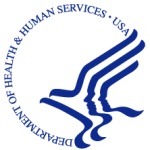- Industry: Government
- Number of terms: 33950
- Number of blossaries: 0
- Company Profile:
United States Department of Health and Human Services, Radiation Emergency Medical Management
A type of treatment in which body tissue is exposed to high temperatures to damage and kill cancer cells or to make cancer cells more sensitive to the effects of radiation and certain anticancer drugs.
Industry:Health care
Referring to lymphocytes, a type of white blood cell. Also refers to tissue in which lymphocytes develop.
Industry:Health care
Surgery to remove most, but not all, of the vulva (the external female genital organs, including the clitoris, vaginal lips, and the opening to the vagina). The clitoris may not be removed. Sometimes lymph nodes in the groin area are also removed. Also called partial radical vulvectomy.
Industry:Health care
A substance used on the skin to soothe or heal wounds, burns, rashes, scrapes, or other skin problems. Also called unguent.
Industry:Health care
A substance that is being used to treat overactive parathyroid glands in patients with kidney failure. It is also being studied in the treatment of cancer. Paricalcitol belongs to the family of drugs called vitamin D analogs.
Industry:Health care
A blood vessel that carries blood to the liver from the stomach, small and large intestines, spleen, pancreas, and gallbladder. Also called hepatic portal vein.
Industry:Health care
Trifolium pratense. A plant with flowers that has been used in some cultures to treat certain medical problems. It is being studied in the relief of menopausal symptoms and may have anticancer effects. Also called purple clover, Trifolium pratense, and wild clover.
Industry:Health care
A highly malignant type of cancer typically found in glandular cells that line the digestive organs. The cells resemble signet rings when examined under a microscope.
Industry:Health care
A serious condition in which there is inflammation throughout the whole body. It may be caused by a severe bacterial infection (sepsis), trauma, or pancreatitis. It is marked by fast heart rate, low blood pressure, low or high body temperature, and low or high white blood cell count. The condition may lead to multiple organ failure and shock. Also called SIRS.
Industry:Health care
